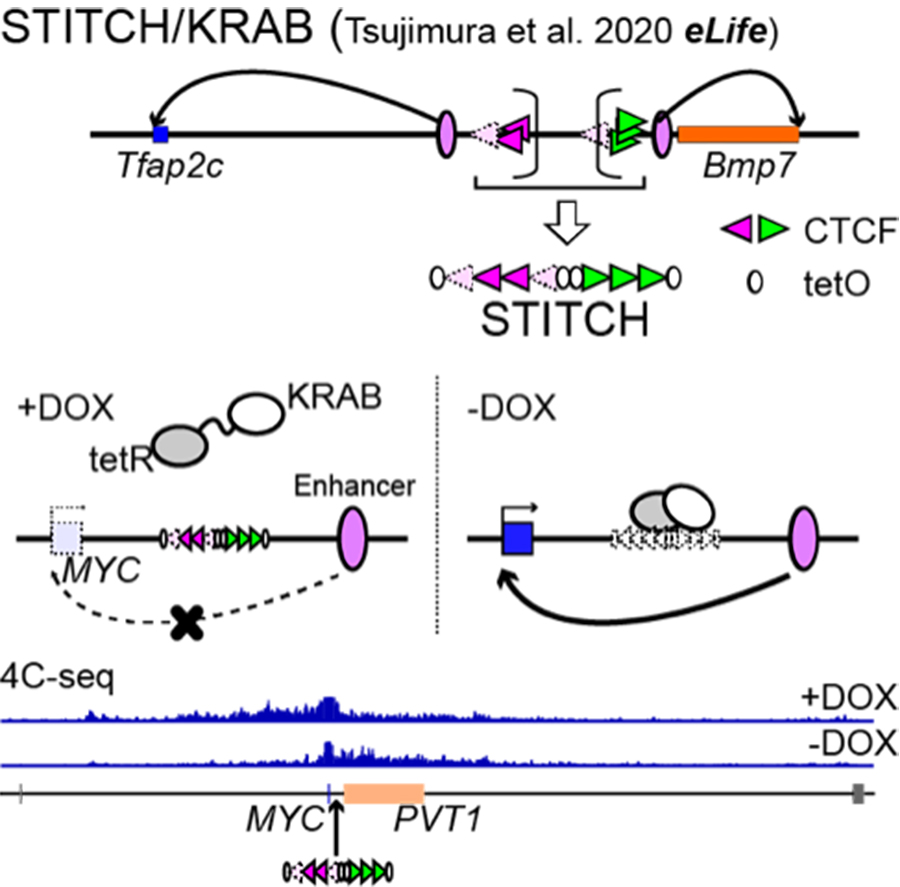
Taro Tsujimura
| Position | Associate Professor |
|---|---|
| Group name | Single-Cell Genome Information Analysis Core (SignAC) |
| Research Field | Genomics and Gene Regulation |
| Awards | July 2010 Postdoctoral Researcher Travel Award, Annual meeting of the Society of Molecular Biology and Evolution, 2010 June 2008 Final candidate for Walter M. Fitch Student Award, Annual Meeting of the Society of Molecular Biology and Evolution 2008 March 2008 Excellent Doctoral Thesis Award 2008 from Department of Integrated Biosciences, Graduate School of Frontier Sciences, University of Tokyo March 2008 Dean Prize, Graduate School of Frontier Sciences (Doctoral Course) 2008 from Graduate School of Frontier Sciences, University of Tokyo |
| Joined | Dec. 1, 2019 |
Research Overview
3D (epi-)genome at single-cell resolution
My research interest is to understand full spectrum of cis-interaction to gain insights into evolution and human diseases by genomic rearrangements. I have recently developed a system, named STITCH, to control gene-enhancer interaction by drugs (Tsujimura et al. 2020 eLife). Exploiting the unique system, I would like to further dissect out the process of gene activation by long-range enhancers, and how it is regulated in the genome.
The field of epigenomics is being accelerated by rapid revolution of technology to analyze the epigenomic and transcriptomic states of individual cells. I am also engaged in development of novel analytical tools for single-cell epigenomics. Taking advantage of the collaborative environment at ASHBi, I would like to apply these techniques and others for the the studies of myself and others, to establish a cutting-edge concept in the field of human biology.

Biography
Taro Tsujimura obtained his PhD from the University of Tokyo for his study in the regulation of tandemly duplicated opsin genes in zebrafish (2008). In 2009, he moved to EMBL Heidelberg in Germany and studied the relationship between genomic organization, chromatin conformation, and enhancer regulation as a postdoc. In 2014, he became a Research Assistant Professor at University of Tokyo Hospital, and then at Keio University School of Medicine. In 2019, he moved to ASHBi, Kyoto University as a Junior Associate Professor, and was promoted to Associate Professor.
Publications
Tsujimura T, Takase O, Yoshikawa M, Sano E, Hayashi M, Hoshi K, Takato T, Toyoda A, Okano H, Hishikawa K. Controlling gene activation by enhancers through a drug-inducible topological insulator. Elife. 2020 May 5;9:e47980. doi: 10.7554/eLife.47980. PMID: 32369019; PMCID: PMC7200164.
Tsujimura T, Takase O, Yoshikawa M, Sano E, Hayashi M, Takato T, Toyoda A, Okano H, Hishikawa K. Control of directionality of chromatin folding for the inter- and intra-domain contacts at the Tfap2c-Bmp7 locus. Epigenetics Chromatin. 2018 Sep 14;11(1):51. doi: 10.1186/s13072-018-0221-1. PMID: 30213272; PMCID: PMC6137755.
Tsujimura T, Idei M, Yoshikawa M, Takase O, Hishikawa K. Roles and regulation of bone morphogenetic protein-7 in kidney development and diseases. World J Stem Cells. 2016 Sep 26;8(9):288-96. doi: 10.4252/wjsc.v8.i9.288. PMID: 27679685; PMCID: PMC5031890.
Tsujimura T, Masuda R, Ashino R, Kawamura S. Spatially differentiated expression of quadruplicated green-sensitive RH2 opsin genes in zebrafish is determined by proximal regulatory regions and gene order to the locus control region. BMC Genet. 2015 Nov 4;16:130. doi: 10.1186/s12863-015-0288-7. PMID: 26537431; PMCID: PMC4634787.
Tsujimura T, Klein FA, Langenfeld K, Glaser J, Huber W, Spitz F. A discrete transition zone organizes the topological and regulatory autonomy of the adjacent tfap2c and bmp7 genes. PLoS Genet. 2015 Jan 8;11(1):e1004897. doi: 10.1371/journal.pgen.1004897. PMID: 25569170; PMCID: PMC4288730.


